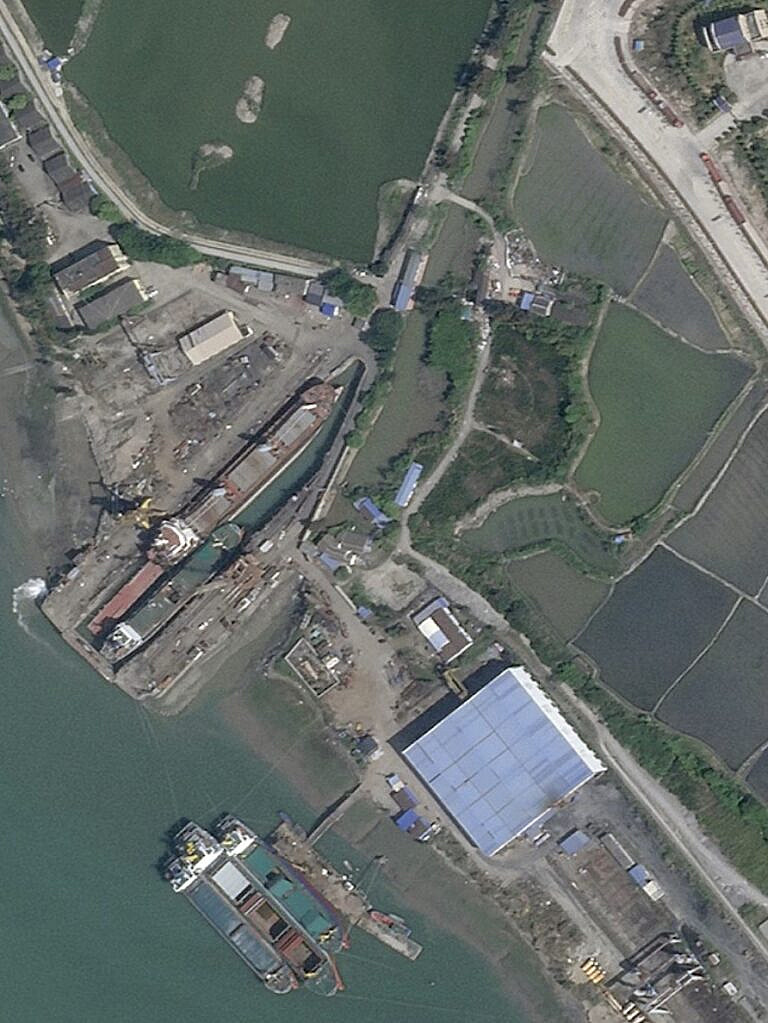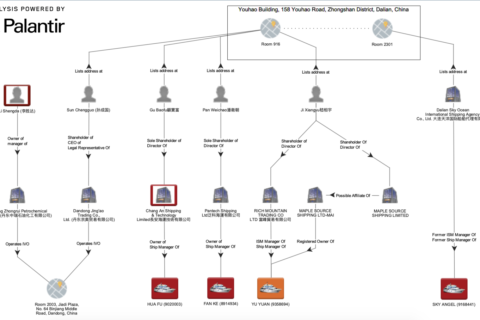UN-Sanctioned Cargo Ship Detained in Indonesia

In 2017, the United Nations sanctioned the Chinese-owned PETREL 8 for silently ferrying coal between its country of origin and North Korea. Now, six years later, Indonesian authorities have detained the cargo ship for violating that port ban.
FOR IMMEDIATE RELEASE — In 2017, the United Nations placed a port ban on a Chinese-owned ship called the PETREL 8. It was silently moving North Korean coal to China. Not only was it able to dodge the scrapheap or “vessel junkyard” with the help of Chinese courts, but it was also resold, repaired and returned to the seas a few years after it was banned. After being auctioned off and camouflaging its identity, the Petrel 8 was sold once more.
C4ADS continually monitors over 300 high-risk vessels associated with smuggling and sanctions evasion daily to track illicit activities, including the PETREL 8. Since its sanctioning in 2017, we’ve been on the lookout for any activity from the PETREL 8, which we finally discovered in 2022, while on its way to Indonesia. From there, we traced its movements back to northeast China. We flagged the PETREL 8’s illicit activities in June 2022 and were proud to see it finally detained in Indonesia that year.
C4ADS recently contributed to a published piece by The Washington Post detailing the PETREL 8’s unique journey and why it’s currently detained in Indonesia. We’re proud to see our efforts continue to grow public awareness of the power of PAI analysis. We hope by teaching others it’s possible to trace the activities of illicit actors, we can eventually crack malign ecosystems that work to undermine international authorities and local governments.
“The designation of vessels is supposed to serve as a financial deterrent, because the consequences — like port entry bans or prohibition of its sale — significantly reduces their value,” said Andrew Boling, C4ADS analyst who provided analytical support to The Post. “If a vessel can be sold even after getting sanctioned, this deterrent effect is lost.”
The PETREL 8’s history poses real problems for the credibility of global sanctions regimes. If companies and individuals that violate sanctions are allowed to make a profit even after they’ve been caught, the international community may find it difficult to hold these entities accountable for their actions.
C4ADS is committed to the work we do: utilizing PAI and data tools to continue shedding light on the bad actors involved in identity tampering like those involved in PETREL 8’s story.
For additional information about our work involving vessel identity tampering and other illicit shipping practices, please read our Unmasked report or explore our website to learn more.





